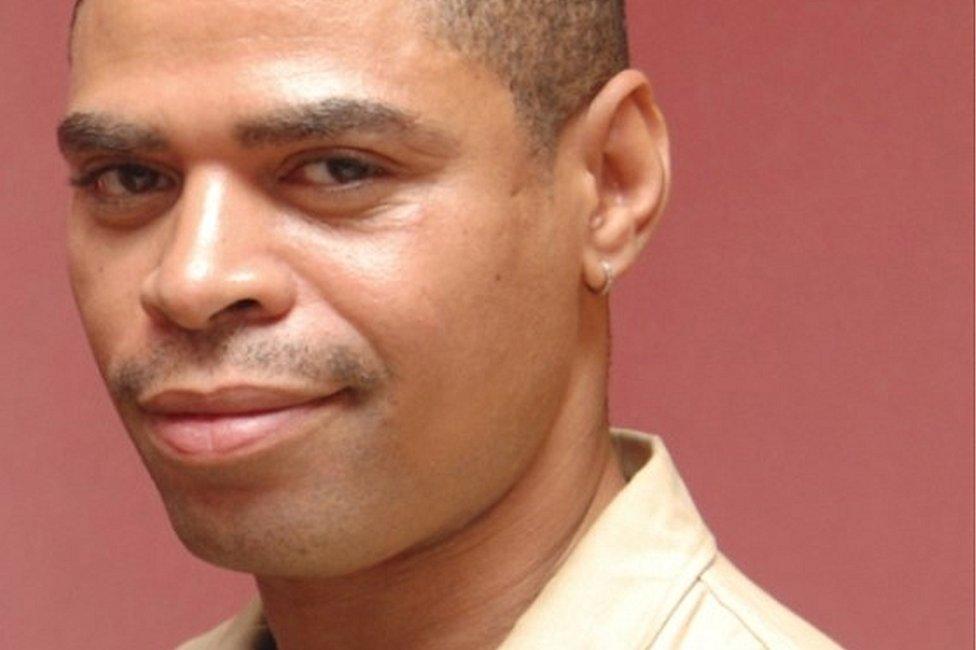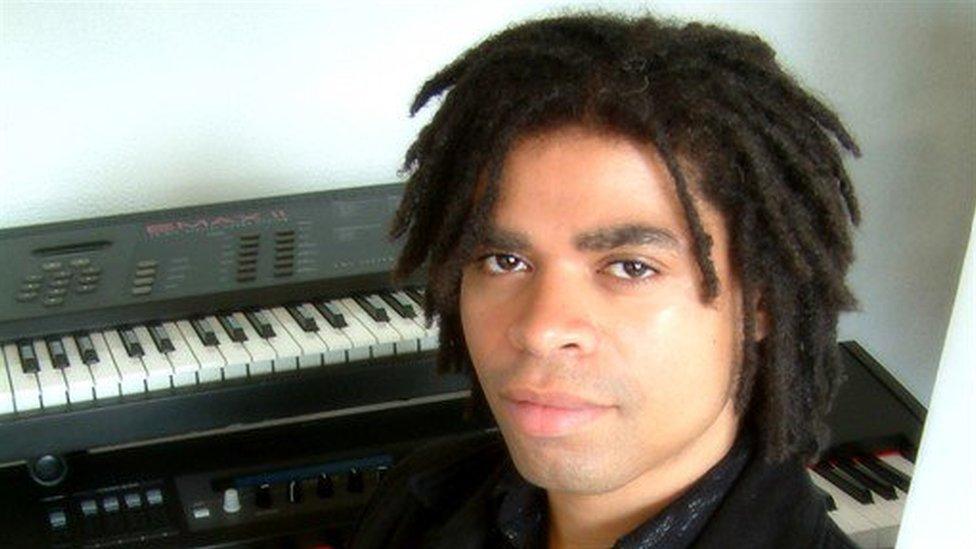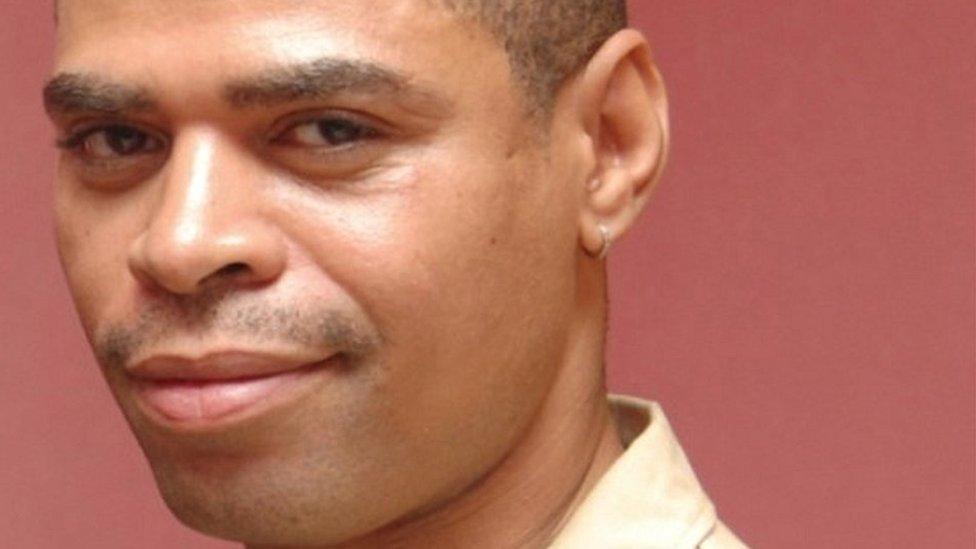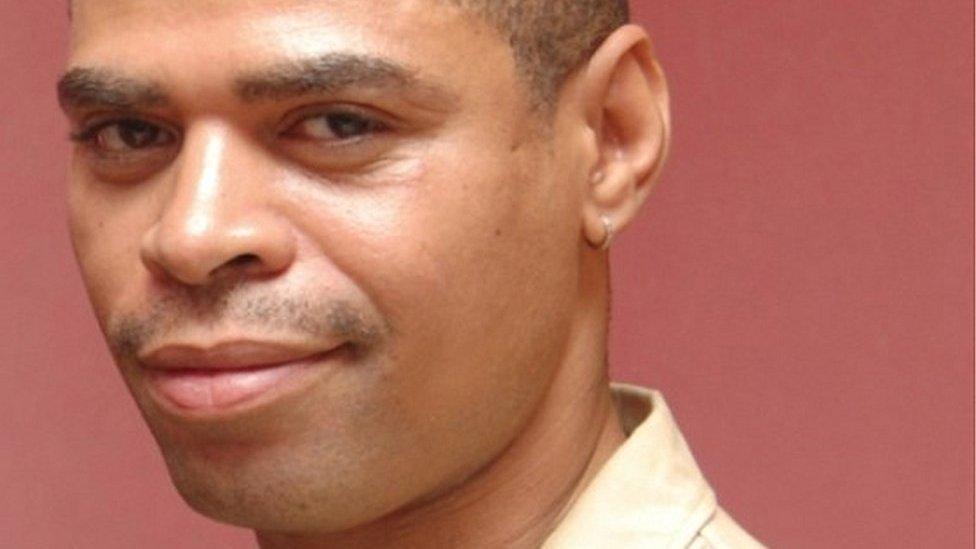Sean Rigg death: Met Police cleared of misconduct over custody death
- Published

Sean Rigg died while in police custody in 2008
Five Metropolitan Police officers have been cleared of misconduct over the death of a musician who died in Brixton Police station.
Sean Rigg, 40, who had schizophrenia, died after he was restrained while in custody in August 2008.
PCs Andrew Birks, Richard Glasson, Matthew Forward and Mark Harratt and Sgt Paul White were accused of a string of failings over Mr Rigg's treatment.
A Met Police misconduct panel found "none of the allegations are proved".
Mr Rigg's sister, Marcia Rigg-Samuel, said the result provided police with a "licence to kill", as she vowed to continue to her "fight for justice".
However, the Met Police's Assistant Commissioner Helen Ball denied the "licence to kill" claim.
The Rigg family's solicitor, Daniel Machover, said the decision "flies in the face of [an] inquest jury's damning conclusions and makes a mockery of the police's misconduct procedures".
The Met said it was sorry about Mr Rigg's death and that it had "fully scrutinised" all the facts.
The five officers had faced disciplinary proceedings over the arrest and detention of Mr Rigg more than a decade after he died.

Mr Rigg died after being held in the prone position by officers for more than seven minutes
Mr Rigg was arrested in Balham in August 2008 after he was seen aiming karate kicks at members of the public for no apparent reason.
He was restrained in the prone position by three officers for more than seven minutes and later died after suffering a heart attack.
An Independent Police Complaints Commission (IPCC) investigation was launched, but found police had acted "reasonably and proportionately".
However in 2012, an inquest jury found police had used "unsuitable force" when they arrested Mr Rigg.
No criminal charges were brought over his death, apart from one count of perjury against Mr White, who was later cleared.

Sean Rigg's death timeline
August 2008 - Sean Rigg arrested in Balham. He dies of a cardiac arrest hours after being restrained
Independent Police Complaints Commission (IPCC) launches an investigation into Mr Rigg's death, which concludes that there was no evidence of neglect or wrongdoing and that the police had acted "reasonably and proportionately"
August 2012 - Southwark Coroner's Court concludes police used "unsuitable and unnecessary force" on Mr Rigg
November 2012 - Independent review into IPCC's handling of the case launched
March 2013 - Three Met Officers are arrested on suspicion of perverting the course of justice
May 2013 - Independent review concludes the IPCC's review of Mr Rigg's death contained a series of failings, and recommended investigators re-examine key evidence including whether officers should face misconduct proceedings
October 2014 - Crown Prosecution Service (CPS) announces there will be no criminal charges raised against the officers
July 2015 - CPS reopens investigation into Custody Sergeant Paul White under the Victims' Right to Review
November 2016 - Southwark Crown Court unanimously acquits Sgt White of perjury
April 2018 - Independent Office for Police Conduct (IOPC) instructs the Met Police to begin gross misconduct hearings against five officers
March 2019 - All five officers are cleared of misconduct

The victim's sister Ms Rigg-Samuel said: "Today's decision and the fact that somebody can be restrained in the prone position for seven minutes has given the officers a licence to kill.
"It may be the end of the legal proceedings but it's not the end as far as me and my family are concerned. The truth will out."
Solicitor Mr Machover said: "Today will only serve to strengthen the police's sense of impunity.
"It is also scandalous that it has taken over 10 years to get this point - a delay mainly down to the IOPC's abject failure to both properly investigate at the beginning and then to carry out an efficient second investigation."
'Stress and trauma'
The Police Federation, which represents rank-and-file officers, has now called for a one-year time limit for disciplinary proceedings.
Phill Matthews, of the Police Federation, said: "The federation are campaigning for investigations to be completed in a timely manner to prevent further officers being subject to prolonged stress and trauma.
"[This is] not because we are trying to get officers off on technicalities, but because we argue that 12 months is a more than adequate length of time for any non-criminal investigation to be satisfactorily concluded."
'Challenging' situation
Assistant Commissioner Ball said: "I would like to extend my deepest sympathies to Mr Rigg's family. They have lost a much-loved son and brother and we are truly sorry.
"The officers were sent that day into the most challenging of situations."
Ms Ball, who is in charge of professionalism at the Met, said: "Officers do not act with impunity and there's certainly no licence to kill, that would be wholly wrong.
"In fact this case has been through two investigations, and a re-investigation, a public inquest, a trial and now this public hearing, so it's been intensively scrutinised.
"The panel has today found that they did not breach any of the standards of professional behaviour."
The IOPC said it had reviewed how it investigated deaths following police contact, in the wake of the case involving Mr Rigg.
"We now complete nearly half of our investigations within six months and about 80% within a year," it said.
- Published13 February 2019

- Published4 February 2019

- Published1 February 2019
